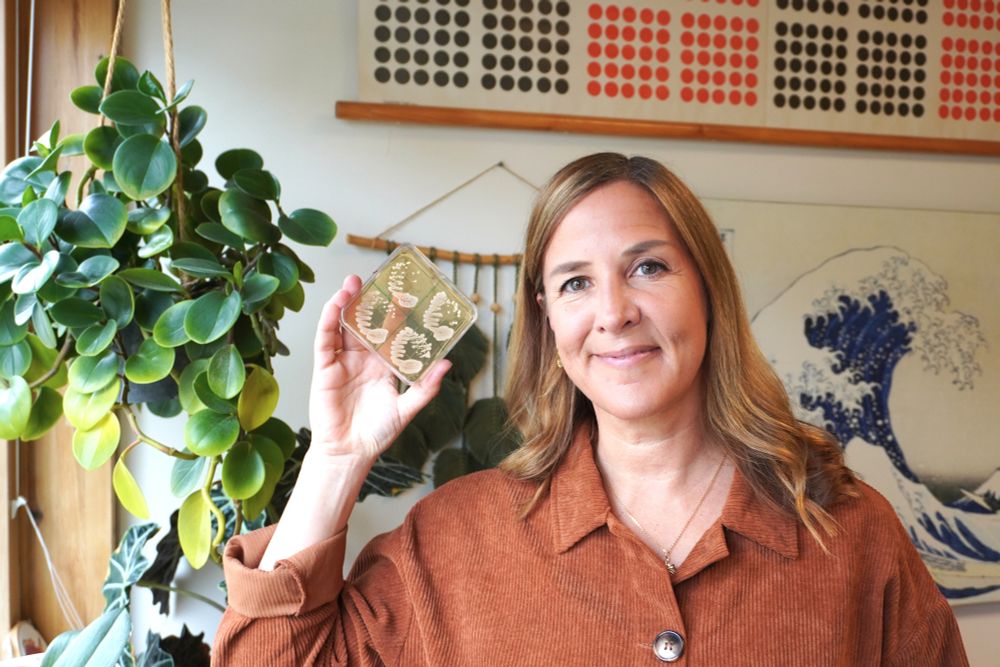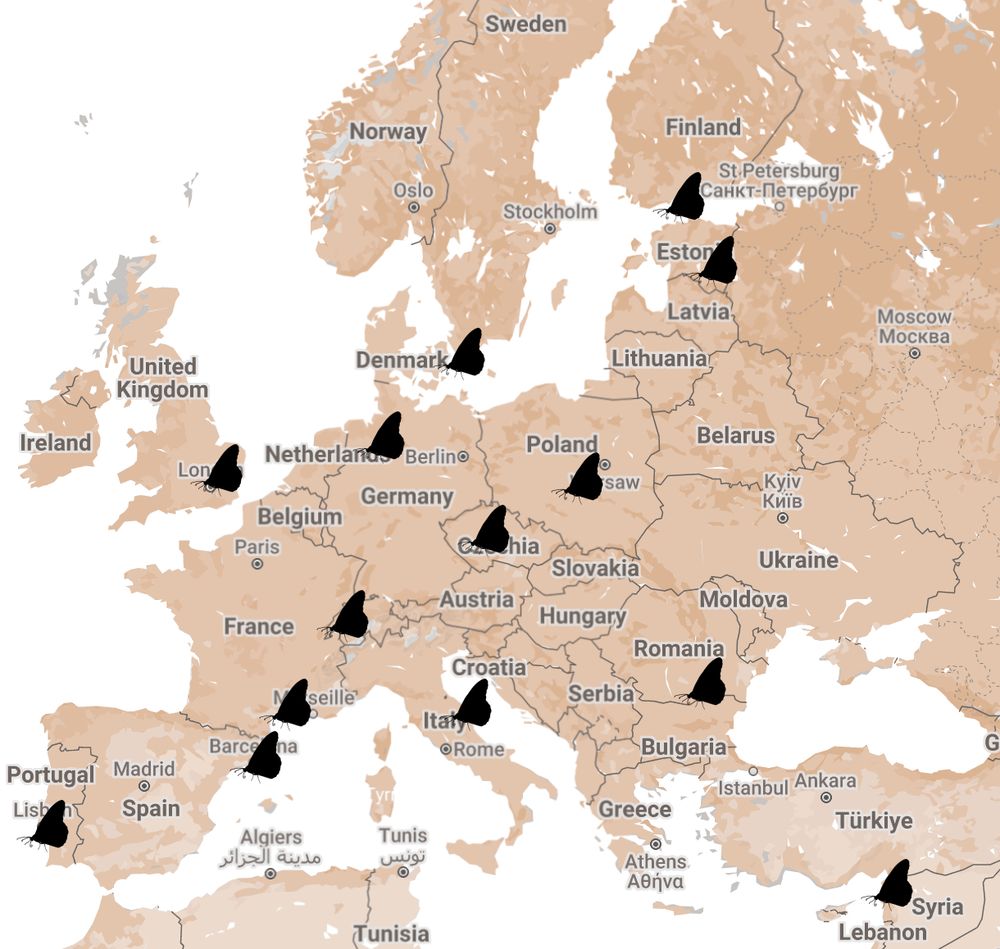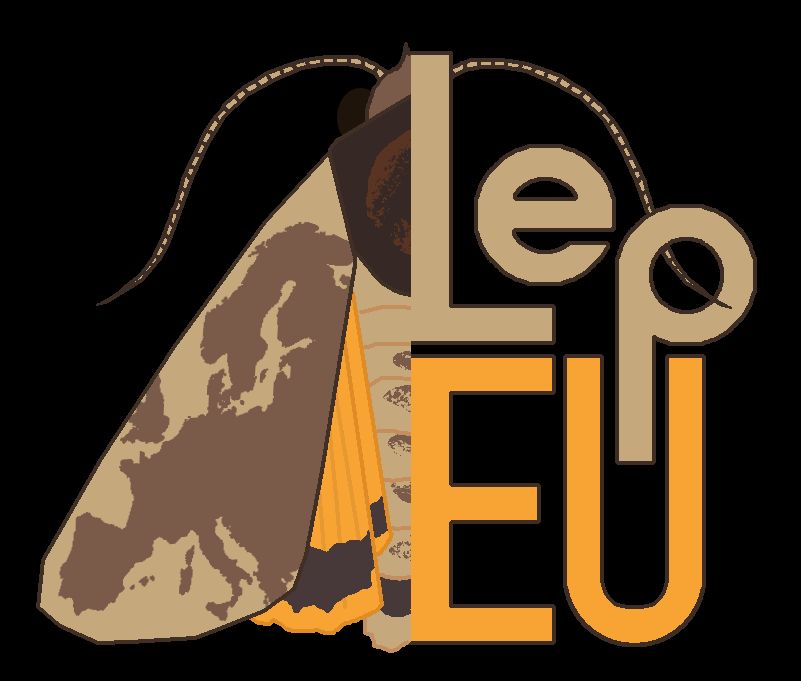
Texto de la comunicación oral presentada en el 9º Congreso Forestal Español 16 al 20 de junio Gijón (Asturias) @irnase.bsky.social @mbgcsic.bsky.social y @ebdonana.bsky.social
24.10.2025 07:42 — 👍 3 🔁 2 💬 0 📌 0@agaytan.bsky.social
Postdoctoral researcher (JdC) at the Spanish National Research Council (IRNAS-CSIC) || Associate editor at Journal of Applied Ecology || Exploring the impact of global change on plant-based species interactions

Texto de la comunicación oral presentada en el 9º Congreso Forestal Español 16 al 20 de junio Gijón (Asturias) @irnase.bsky.social @mbgcsic.bsky.social y @ebdonana.bsky.social
24.10.2025 07:42 — 👍 3 🔁 2 💬 0 📌 0
#Postdoc in #landscape ecology with me
How does plant species traits influence communities responce to environmental change? An unique re-survey data set from the UK will be used to explore & test hypotheses about dispersal and persistence 🧪🌍
Apply 30th of November
su.varbi.com/en/what:job/...

📢 Paper out! We show that the oak leaf miner outbreak in Sweden is not caused by Acrocercops brongniardella, but by a cryptic species, A. andreneli — both sharing an entire parasitoid community.
23.09.2025 21:54 — 👍 2 🔁 0 💬 0 📌 0
Become my colleague
We are recruiting a PhD student in Physical geography with a focus on Glaciological remote sensing
🌍⚒️ #science #glaciology #remotesensing #phd
@stockholm-uni.bsky.social
share.google/n5eQOzCf35wO...
Hi Anne, good idea! could I be added?
25.08.2025 06:16 — 👍 0 🔁 0 💬 0 📌 0🚨 Postdoc opening 🚨
Join us at Forest Biology Center (Poznań, Poland) to study forest ecology under climate change.
2-year contract (extendable), start Jan 2026 (flexible). Apply by Sept 30, 2025.
🔗 forestbiologycenter.amu.edu.pl/our-team/joi...
Stigmella sp.! Imposible (o casi) de criar en laboratorio, a diferencia de otros minadores del roble, que son ideales para estudios de especies multivoltinas.
19.07.2025 21:23 — 👍 1 🔁 0 💬 1 📌 0Cuando tengáis datos de las cantidades que llegan al suelo se verá hasta dónde puede llegar la cosa. Pinta muy chulo
07.07.2025 20:13 — 👍 0 🔁 0 💬 1 📌 0Habrá más abundancia de arañas en árboles donde hay mas bellotas con melazo?
07.07.2025 19:55 — 👍 0 🔁 0 💬 2 📌 0Me encantó la idea de la transmisión del microbioma entre la bellota y el insecto. Incluso podría tener una huella en las arañas como depredadoras de los comedores de melazo.
07.07.2025 19:30 — 👍 2 🔁 0 💬 2 📌 0
I will happily spend the summer at @eawag.bsky.social 🇨🇭. Not really in aquatic research but in multilayer network analyses with my terrestrial ecology stuff.
07.07.2025 15:15 — 👍 4 🔁 0 💬 0 📌 0Pues te dejo una teoría rocambolesca a ver si ilumina algo (jajaja): por la noche baja la temperatura y los ungulados se mueven más buscando recursos de encina en encina... si esos escarabajos son del grupo que yo digo, son coprófagos.
05.07.2025 21:19 — 👍 0 🔁 0 💬 1 📌 0Fernando, no podrían ser afodinos? (=Subfamilia Aphodiinae) Es complicado
05.07.2025 21:09 — 👍 0 🔁 0 💬 1 📌 0
Job alert! We have a postdoc position available in the Stelkens Lab at Stockholm University. Join us and apply experimental evolution and comparative genomics in the model system yeast to test for parallel climate adaptation. Apply through this link: su.varbi.com/en/what:job/... Deadline 15 August.
30.06.2025 13:32 — 👍 43 🔁 47 💬 2 📌 0
The aim of this proposal is to place population genomic insights into a comparative framework to gain fundamental insights into the determinants of evolutionary outcomes. The project will work within LepEU, the European Lepidopteran Population Genomics Consortium (https://lepeu.github.io/). LepEU provides access to field samples from European populations of diverse species. Chromosome-scale reference genomes are provided by Project Psyche (https://www.projectpsyche.org/). Networking during the postdoc will be facilitated by participation in the 10kLepGenomes COST Action (https://10klepgenomes.eu/). Existing datasets await analysis, while additional samples need DNA extraction and submission for sequencing. Functional validation capability (CRISPR/Cas9 gene manipulations) is also available to test emergent hypotheses of allele-to-phenotype impacts. Personal research interests of the postdoc will be important to determine the exact project, as the project has a generous sequencing budget.

The successful applicant should have a PhD (obtained within 6 years of the application deadline) in a suitable subject area, such as evolutionary biology or population genomics. A strong interest in population genomics, local adaptation, comparative analyses, and experience working with genomic-scale data is essential. The candidate must have a documented publication record demonstrating relevant skills. Experience working with bioinformatic pipelines (e.g., Snakemake), or working with butterflies is welcome but not essential. The net salary is 28,000 SEK/month (~2,430 Euro, not subject to Swedish income tax) and comes directly from the Carl-Trygger Foundation stipend, which is paid out directly to the postdoc. Only PhD candidates acquired outside of the host department can apply. Currently, the lab of Prof. Wheat consists of 3 postdoctoral researchers, while the Dept. of Zoology provides a vibrant and excellent research environment of active, dynamic researchers. Applications should include: i) a succinct description of research interests and experience, detailing your contribution to any relevant publications (max 1 page), ii) why you are the ideal candidate for this position in the lab (max 1 page); iii) a CV including a list of publications, and iv) the name and contact information of two personal references. Applications will be reviewed on a rolling basis with a deadline of 23 August 2025. The project is planned to start on 1 October, but flexibility in the starting date can be provided for a suitable candidate. Please contact Prof. Wheat for additional information.
🚨Postdoc opportunity🚨: LepEU postdoc: comparative population genomics of European scale adaptation in butterflies
2 year, full-time PD in my group, Stockholm Univ.
Applications assed on rolling basis, deadline: 23 August 2025. Planned start 1 Oct.
Details:
christopherwheatlab.wordpress.com
Sí, genial! Más aún este año, que estoy escapando del calor con un par de congresos en el norte y una estancia en Lucerna. Un abrazo, Fernando!
18.06.2025 17:46 — 👍 1 🔁 0 💬 0 📌 0Dependerá mucho de la producción de fruto del año, como cuando compiten con las Cydias.
18.06.2025 17:22 — 👍 1 🔁 0 💬 1 📌 0
New week, new conference. This time enjoying the Spanish National Forestry Congress in Gijón, Asturias. #9CFE
17.06.2025 17:48 — 👍 2 🔁 0 💬 0 📌 0Loving natural history as we do makes it difficult for us to feel lost, but keeps us in constant learning. But I'm agree... is not possible to attend many histories simultaneously.
16.06.2025 22:24 — 👍 0 🔁 0 💬 0 📌 0You are not alone, my friend 😅
16.06.2025 12:16 — 👍 1 🔁 0 💬 1 📌 0
Really special place where Mediterranean oaks have branches touching the sea!
(Poo, Asturias, Spain)



Many thanks to @sibecol-aeet-25.bsky.social for a fantastic week in Pontevedra!
#SIBECOLAEET2025
Clouds darkening over NOAA research. We are slated for elimination in next years budget. Astonishing loss to the nation and the world if it happens.
11.04.2025 17:02 — 👍 26 🔁 28 💬 10 📌 4Paper out!
@canelotara.bsky.social @micbog.bsky.social
@irnase.bsky.social

We're happy to introduce our 5 new Associate Editor mentees! ✨🌎
Throughout the 2-year scheme, each mentee develops their knowledge of the peer review process and handles manuscripts with the help of our Senior Editors, who act as mentors 💭🧪
Read more: bit.ly/4aUnHTD
Artículo recientemente publicado @irnase.bsky.social y ya en nuestro repositorio institucional Digital CSIC
Título: Livestock shifts lepidopteran herbivore community due to intraguild elimination in Mediterranean agroforestry systems
Autor: Gaytán, Álvaro et al...
hdl.handle.net/10261/376122